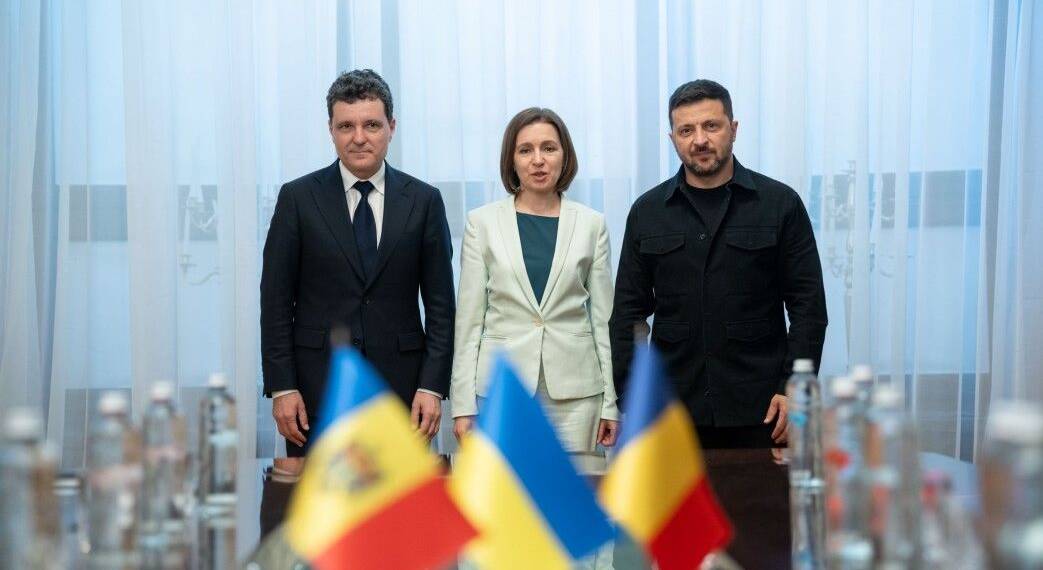Ukrainian President Volodymyr Zelensky has issued a stark warning regarding Russia’s military ambitions in southeastern Europe, particularly focusing on the strategic port city of Odesa. Speaking at a conference of southeastern European leaders in Odesa, Zelensky emphasized that Russia’s actions are not limited to Ukraine but extend to Moldova and Romania, according to Zelensky posing a significant threat to regional stability.
Target: Odesa, Moldova and Romania
Odesa, located on the Black Sea coast, holds immense strategic importance due to its role as a vital port for Ukraine’s exports, including grain and other essential goods. The city has been subjected to repeated Russian airstrikes, with recent attacks targeting residential and medical facilities, resulting in civilian casualties. These assaults not only disrupt Ukraine’s economy but also undermine international efforts to maintain global food security.
“Russia’s plan in its ongoing all-out war on Ukraine is to take Odesa and continue to Moldova and Romania”, Ukrainian President Volodymyr Zelenskyy told southeastern European leaders at a summit in the Black Sea port city on Wednesday.
“Russia’s war plans target this region, Odesa. Then they are targeting the borders with Moldova and Romania. Of course, we need protection now. But above all, we need long-term guarantees that these can never happen again,” he emphasized.
Beyond Ukraine, Russia’s actions have raised alarms in neighboring Moldova and Romania. Moldovan President Maia Sandu condemned the Russian missile attack on Odesa, highlighting the direct threat posed to shared European security. She called for urgent support for Ukraine, emphasizing the need for a unified response to counter Russia’s aggression.
Romania, a NATO member, has also expressed concern over Russian missile strikes that have crossed its airspace, viewing such actions as a direct challenge to the alliance’s security. While Romania’s authorities have denied that missiles entered its territory, the proximity of these strikes underscores the vulnerability of NATO’s eastern flank.
In light of these developments, Ukraine President Zelensky has urged for collective action to counter Russia’s military threats. He emphasized the need for both immediate protection and long-term security guarantees for Ukraine and its neighbors. Zelensky also voiced support for Moldova, whose pro-European government faces crucial elections amid alleged Russian destabilization efforts.
Russia Response
Russian officials have denied any deliberate targeting of Ukrainian President Zelensky or other foreign dignitaries during recent missile strikes in Odesa. Deputy Chairman of Russia’s Security Council, Dmitry Medvedev, stated that if Moscow had intended to target Zelensky, it would have done so directly. He dismissed allegations of an assassination attempt as unfounded, asserting that the strikes aimed at military infrastructure, not political figures.
The Russian Defense Ministry has characterized its recent missile and drone attacks on Ukrainian cities, including Odesa and Kyiv, as targeted operations against military facilities. However, Ukrainian officials report significant damage to civilian infrastructure, including residential buildings and medical facilities, resulting in casualties. This discrepancy has led to international criticism of Russia’s conduct in the conflict.
In response to concerns about potential Russian expansion into Moldova and Romania, Moscow has reiterated its stance on Transnistria, a breakaway region in Moldova. Russian Foreign Minister Sergey Lavrov has accused Moldova’s pro-European government of undermining negotiations concerning Transnistria’s status. He likened Moldova’s actions to those of Ukraine, suggesting a parallel in their foreign policy orientations.
There are reports that indicate Russia plans to increase its military presence in the separatist Transnistria region of Moldova, potentially deploying up to 10,000 troops. Moldova has expressed concerns that such a move could serve as a pretext for further aggression against it as well as against Romania, both of which are seeking closer ties with the European Union.








